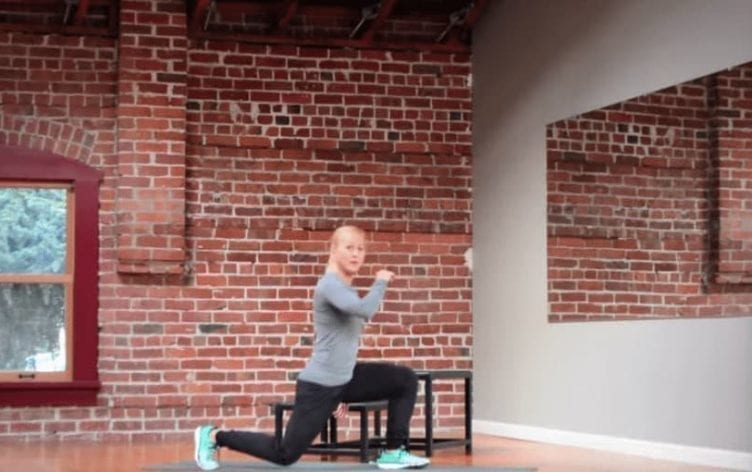
Glutes (aka butt, bottom, backside, booty or tush) hold a lot of power, and strengthening them can help you become a better runner, cyclist, walker, jogger, skater, swimmer, dancer, squatter…you get the idea, right? Strong glutes are a win-win for your body because they help take pressure off of your knees and back. When your glutes don’t work properly, other muscles have to compensate to do the work. This can result in discomfort and injuries.
It is rare for the glutes to take center stage because the quadricep muscles are bullies and tend to take over many lower-body exercises. Even worse, your back and other muscles will try to compensate for weak gluteals.
But the following five exercises give your glutes a chance to “shine” and be the star of the show! You can do these back to back or incorporate them into a total-body workout:
- Supine Bridges (Double and Single Leg)
- Clamshells
- Squats
- Single-Leg Squats
- Step-Ups
All of these exercises can be done without weights, or you can add weight or resistance when appropriate. You’ll need a chair and a step or platform (stairs work here, too).
After a short, dynamic warm-up, complete 8–12 repetitions of each exercise. Start with one set, and work your way up to three sets.
- Supine Bridges (Double and Single Leg)
Start by lying down on your back with your legs hip-width apart and feet relaxed, with heels pressed into the floor. Squeeze and activate your glutes to lift and extend your hips off the floor. Don’t over-arch your spine, and keep your head and neck relaxed.
- Clamshells
Lying on your side with knees flexed and feet together, open legs like a clamshell to activate your gluteus medius muscle. You can add resistance with a band for a greater challenge.
- Squats
Stand tall in a bilateral stance, and push your hips and weight back into your heels as you sit back into an imaginary chair. Keep your spine neutral (don’t collapse the upper body) and your knees tracking your toes.
- Single-Leg Squats
Use a chair or a TRX (suspension training system) to assist you. Keep your standing foot relaxed as you push your hips back with your knee tracking the toes of your standing leg. Start by actually sitting down on the chair (unless you are using a TRX), and work your way up to barely tapping your gluteus to the chair. Single-leg work is a great way to feel which leg may be stronger/weaker and can help flush out imbalances in strength.
- Step-Ups
Find a strong surface that has enough room for your foot to complete a single-leg step-up. Place your foot on a step or platform, and push the hips back to activate your glutes, pressing your heel into the platform. Step up until you are standing upright, with your hips underneath your shoulders and glutes engaged. Slowly step back to the floor. Keep your knee and hip angle at less than 90 degrees of flexion.

